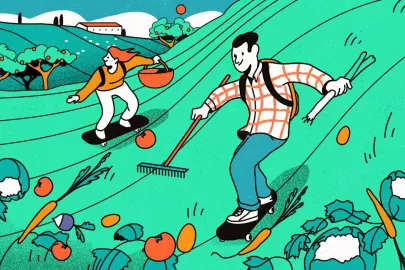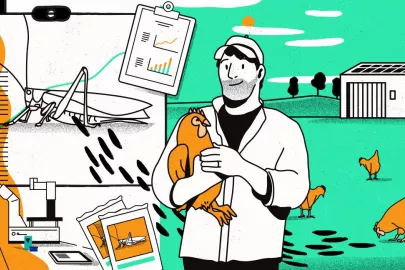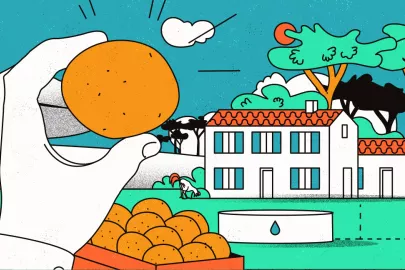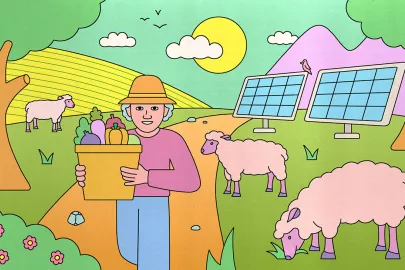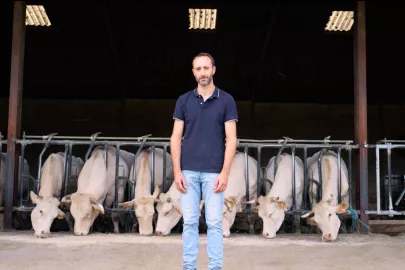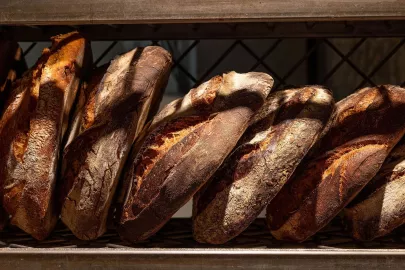Farmers have responded to an ever-growing urban population by filling the cities with a new kind of vegetable farm. As well as supplying fresh food, they offer a connection to living things, and the farmers who look after them.
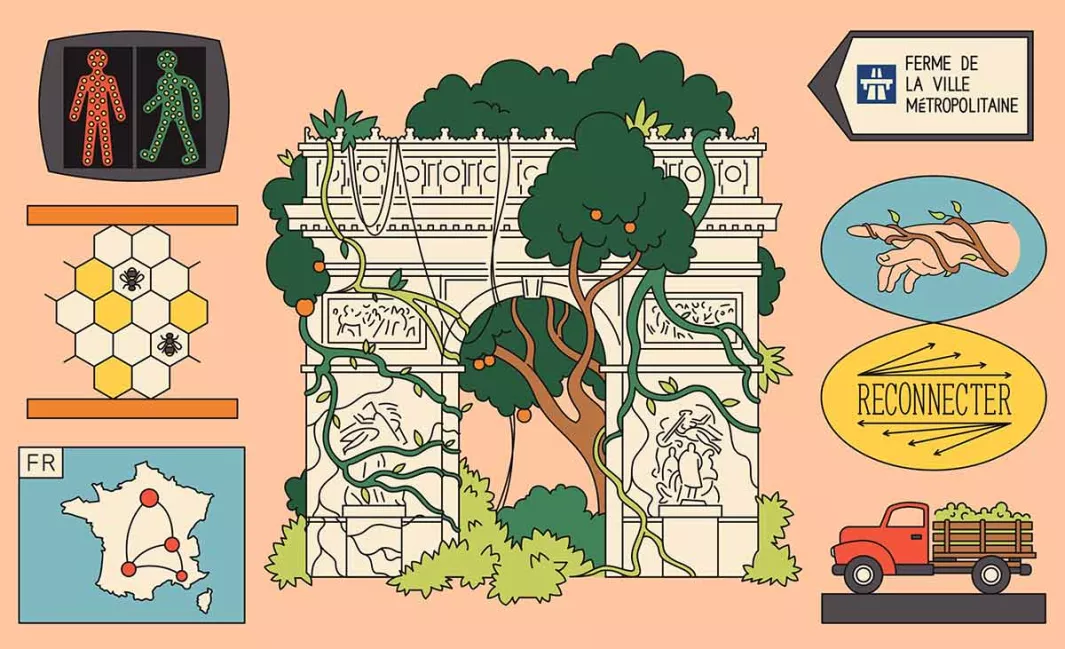
Once through the gate, I am greeted by Métisse and Mariette, the farm's goats. Unperturbed, two sheep graze sedately around their brand new shed, which was constructed as part of a community volunteering project. For a moment, I could almost be in the middle of the Provençal pampas, rather than in the south of Marseilles at the Ferme du Roy d'Espagne, one of the city's three educational farms.
The farm opened in 2004 and had been run by a succession of market gardeners and livestock farmers, some at the start of their farming careers, some retirees, when in June 2019, a team of ambitious agriculturalists took the helm. With their complementary backgrounds (community work, market gardening, etc.), the group are breathing new life into this two-hectare plot, nestled between a small low-income neighborhood, luxury homes and the hills. Every week, over a hundred families come here to fill their baskets with organic vegetables and enjoy a few hours in this green oasis. On my own shopping list that day were lettuces and tomato plants.
The Ferme du Roy d'Espagne is not unique. All over the world, more and more urban farms are popping up, offering city dwellers an escape to nature in the heart of the concrete jungle, as well as an alternative way of purchasing fresh, local produce on their doorstep. The city of Paris now has nearly 30 hectares of space dedicated to urban agriculture. Even roofs that are suitable for greening are being put to good use! In 2010, the American Ben Flanner founded Brooklyn Grange, 30,000 m2 dedicated to the cultivation of fruits and vegetables on a New York rooftop, where colonies of bees happily swarm, producing 100% urban honey.
And when space is at a premium, like in Singapore, ingenious entrepreneurs are stacking crops vertically on several floors. The plants then grow by hydroponics, i.e., out of soil, using a bio substrate irrigated with a water and nutrient solution, delivered via a dripper system. It is a method which could save 70% water compared with conventional farming methods. In France, the organization La Sauge has created an ecological community nursery in Nantes and Pantin. The aim? "For everyone to garden for two hours a week." An ambitious project giving urbanites the opportunity to get back in touch with their food, the cycle of the seasons, ecology, recycling, and proper use of resources. After all, these farms are not intended to feed an entire, constantly growing, urban population. Their virtue lies elsewhere: in offering city dwellers a countryside oasis and above all, a way of meeting the people who feed them. In other words, making connections. Pretty essential, right?
Contributor

Editor

